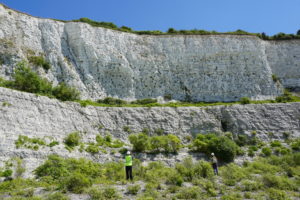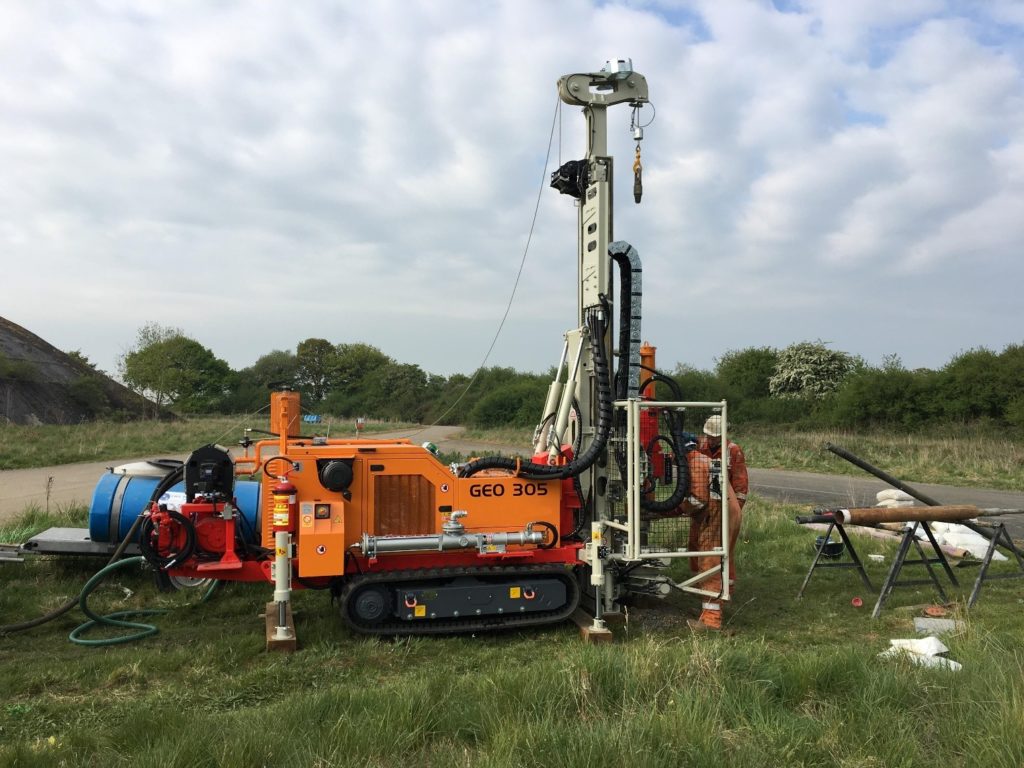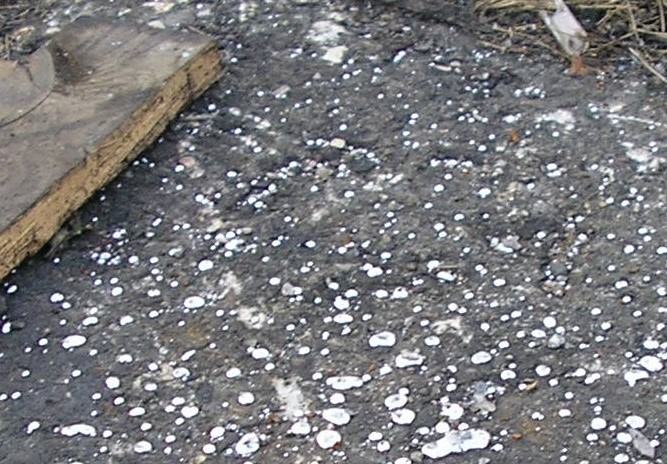Most UK contracts that AGS members enter into will require them to hold various types of insurance – usually including as a minimum, employer’s liability and public liability Insurance. Where work involves interpretative reporting or design then normally the client will seek to ensure the contracting party carries adequate professional indemnity insurance. For any physical contracting work clients will often require the contractor to hold contractor’s all risk (‘CAR’) Insurance.
What aspects of environmental liability are covered by other insurances?
Environmental liability resulting from spills or emissions of contaminants will have limited cover provided by public/third party liability insurance.
Such policies cover occurrences which happen during the period of insurance; they provide “indemnity against legal liability for damages”; but the occurrences or incidents have to be “sudden, identifiable and unforeseen” otherwise they are excluded. Any ‘gradual’ pollution would therefore not be covered by such insurance, nor would costs that do not fall within the definition of “damages
Back in 2000 (AGS Loss Prevention Alert No 7) the AGS warned its members about the potential pitfalls of having inadequate environmental insurance following the introduction of Part 2A of the Environmental Protection Act on 1 April of that year. The AGS advised that members’ activities can cause or exacerbate a contaminated land condition and furthermore the Environment Agency reminded the industry that disturbance caused by site investigation boreholes, site demolition, site stripping and the construction of foundations can all cause contaminants to be released into underground aquifers.
Following the introduction of the Environmental Damage (Prevention and Remediation) Regulations in 2009 the AGS published LPA 48 which warned that the scope of cover provided by general liability policies (such as public liability (“PL”) and professional indemnity (“PI”) policies) in respect of environmental risks may be narrower than many people may anticipate.
Currently there are broadly two types of claims which result from incidents involving environmental damage. The first are private-law civil claims (usually nuisance claims) brought by neighbours. When it is a one-off event, these are usually claims for compensation for the harm that has already occurred. The second are statutory claims brought by regulators such as the Environment Agency which has powers to clean up and charge those who caused the pollution.
The civil claims by neighbours may be covered by a public liability policy, whereas the claims arising out of regulatory action are not covered as the courts have decided that such statutory claims do not give rise to “liability for damages”, within the meaning of the typical insuring clause (Bartoline v. RSA [2006] EWHC 3598, [2008] Env LR 1). Similarly, works that the insured may be required to carry out to its own land in order to prevent further harm to the environment or third party land are not “damages” and therefore not covered by standard public liability policies (Yorkshire Water v Sun Alliance [1997] 2 Lloyds Rep. 21).
Consequently, if a party pollutes a river that is privately owned, its owner may clean up, and sue that party, who can claim on his PL policy. But if the EA steps in and carries out urgent decontamination works to the river, and claims the costs of this under statute, the policyholder must bear those losses himself.
Even if the claims qualify as liability for “damages”, the PL policy may still not provide an indemnity because of the pollution exclusion clause that is standard in most PL policies which requires the pollution to be a result of a “sudden identifiable…incident.” It is often evidentially difficult to establish this, for example an escape from an underground fuel tank or pipe where one can only speculate as to how and over what period the escape occurred.
| Loss |
Covered by PI/PL? |
Covered by EIL? |
| Statutory environmental damage remediation costs |
No |
Yes |
| Preventative works to prevent further spread of contamination |
No |
Yes |
| Environment Agency costs (emergency response works, investigation and prosecution) |
No |
Yes |
| Fines |
No |
No |
| Damage to Third Party Property |
Only if “sudden etc.” escape |
Yes |
| Third Party Loss of Profits |
Only if “sudden etc.” escape |
Yes |
| Third Party Costs |
Only if “sudden etc.” escape |
Yes |
Uptake of Environmental Liability Insurance in UK
Despite this, in the 18 years or so since the publication of LPA 7 warning of the risks, there has been no significant change in the insurance held by UK contractors and consultants and specific environmental liability insurance is not routinely held by the majority of the site investigation industry contractors and consultants. The reasons for this may be threefold;(1) clients do not require that contractors carry this insurance; (2) a lack of understanding by project teams of how the risk is insured (or not insured);and(3) the premiums have, historically, been relatively high. The latter point is of concern as it would indicate that insurers believe that this is an area of high risk whereas the industry apparently does not, albeit market appetite and capacity is increasing which is having a downward effect on premium levels.
The exception to this appears to be the oil and gas industry where environmental liability insurance is called for as routine, principally because many of the oil and gas clients are based in the USA where such insurance is more widely held – perhaps in response to a more litigious regime in this area of work.
In the UK brokers report that demand for ‘gradual’ pollution insurance is concentrated in certain sectors and cover is not purchased widely at present. This is despite the fact that the EU Environmental Liability Directive came into effect in March 2009 and the directive introduced a no fault liability on a “polluter pays” principle. In theory it should have increased demand for environmental liability cover, but to what extent is not clear, as awareness amongst those likely to be most affected is low.
Should AGS members be concerned?
The Environment Agency reports that a significant proportion of aquifer pollution can be attributed to boreholes allowing contaminants to migrate vertically. Typically this will occur where holes are drilled through landfills which are often underlain by an engineered clay liner or naturally-occurring clay which prevents, or at least attenuates, the vertical migration of contaminants. In an effort to determine the thickness of this basal layer and investigate the geological and hydrogeological conditions below, these investigation boreholes often puncture the basal low permeability layers, thereby creating a new pathway which previously did not exist, and inadvertently allowing gradual vertical downward migration of contaminants. An informed client and contractor may seek to avoid drilling through clay liners but this may be less than straightforward when the landfill contents are themselves primarily clay based materials.
The practical challenge to regulators such as the Environment Agency in such cases is proving that a specific borehole or series of boreholes resulted in a specific pollution event. More often pollution from boreholes results in dispersed contamination of the aquifer and it becomes very difficult to prove how and when the observed pollution occurred. Even if it were possible to pinpoint the source of the contamination, it might be argued that the negligence was on the part of the engineer who ‘designed’ the borehole and the engineer’s PI insurance should respond to any claim, although the contractor drilling the borehole might be deemed to be the ‘knowing permitter’ of the contamination. Nevertheless infiltration of contaminants from point sources can have serious consequences. This was the case when a number of shallow soakaways were installed on the M25 threatening the Bricket Wood abstraction borehole in Hertfordshire (see Price et al. 1989). In aquifers the contamination may spread a long way downstream from the point of entry and the bromate contamination traced to its source in Sandridge near St Albans was found to have migrated some 20km, affecting a water abstraction point some 10km away and to have spread across an area of over 40km2 (see Fitzpatrick 2010).
As was the case in 2000 it is perhaps a good time for AGS members to review their environmental insurance policies to ensure that they have adequate and appropriate cover for these risks. Those procuring ground investigation may wish to consider what insurances are called for in their contracts.
References
AGS (2011). Insurance cover for Environmental ‘Cleanup Costs’. Loss Prevention Alert LPA 48, May 2011.
Fitzpatrick CM (2010). The hydrogeology of bromate contamination in the Hertfordshire Chalk: double-porosity effects on catchment-scale evolution. Unpublished EngD thesis, University College London.
Price M, Atkinson TC, Wheeler D., Barker JA. & Monkhouse RA. (1989) Highway drainage to the Chalk aquifer near Bricket Wood, Hertfordshire. British Geological Survey, Technical Report WD/89/3.
Article contributed by Peter Boyd, Operations Director, Ground Engineering, AECOM






